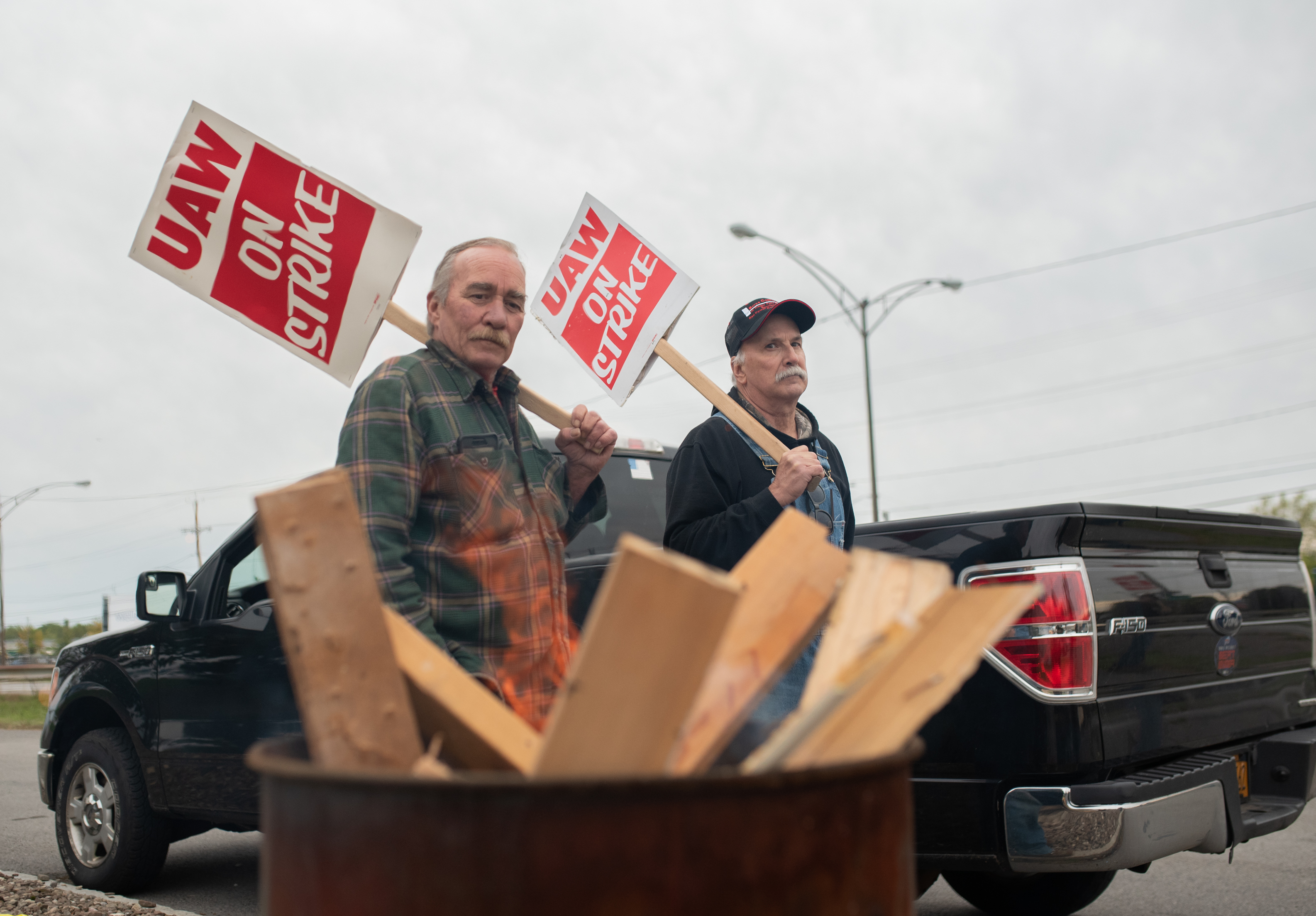ROCHESTER, NEW YORK — In some labor-friendly states like Connecticut and New Jersey, workers are eligible for unemployment insurance when they go on strike. However, in New York, workers are only eligible to apply for unemployment after they’ve already been on strike for seven weeks.
In June, though, the New York State legislature passed a bill that would make workers eligible for unemployment insurance after only one week of a strike.
At the time, the UAW lobbied heavily for the bill; warning state legislators that a strike was likely at GM.
“When we were lobbying, we let them know that this was critical to us here [at GM],” says the hard-nosed UAW Local 1097 Recording Secretary Chris Brancato. “We told them, hey [this strike] is coming up… This year, it was going to come to a head…We thought it as inevitable”.
However, for four months, Andrew Cuomo has sat on the bill and refused to sign despite labor’s lobbying; denying unemployment benefits to more than 3,400 striking GM workers in Western New York.
“I thought the hardest part would be getting it through the Senate and the Assembly…When it went to the Governor’s desk, I thought, “oh, we will be good” because we endorsed the Governor how many times,” says Brancato. “It was mind-boggling.”
Not only is Cuomo refusing to extend unemployment benefits to striking workers, but unlike other politicians, he so far has failed to show up to any of the picket lines at 3 huge GM plants in Buffalo, Lockport, and Rochester.
On Wednesday, Cuomo was in Rochester, just a few miles from the picket line, and couldn’t even swing by for a quick photo-op despite numerous requests.
“We have had how many politicians show up here, we’ve had [New York State Comptroller Thomas] DiNaploi show up here and [Cuomo] doesn’t, you know?” says Brancato.
If Cuomo were to sign the bill passed in June, the law would go into effect immediately; making over 3,400 striking GM workers in the state eligible for benefits three weeks earlier than under current law.
Many labor advocates say that striking workers should have access to unemployment insurance. During the Shop-N-Stop Grocery struck in April, when 31,000 grocery workers throughout New England went on an 11-day strike, some workers in Connecticut were eligible for unemployment benefits.
“It did make a huge difference for them,” says Michelle Evermore, a Senior Research and Policy Analyst at the National Employment Law Project (NELP), which favors granting workers the right to unemployment insurance when they go on strike.
The additional $359 a week, on average, in unemployment compensation could make a massive difference in keeping GM workers’ morale up as the strike into its 26th day.
“The differential power between employers and employees continues to shift in favor of employers, and this is a small way to help level the playing field. Workers, who are out of work, should have access to earned [unemployment] benefits,” says NELP’s Evermore noting that workers pay into unemployment insurance throughout their careers.
Big business has argued vigorously against Cuomo signing the law in New York State.
“A broader view of private-sector work stoppages suggests that the [seven weeks]-delayed flow of UI payments has increased strikers’ incentives to return to work, and paying them sooner could prolong strikes,” wrote Bill Gardin, an analysis with the employer-funded anti-union Empire Policy Center back in May,
However, workers’ rights advocates say that providing unemployment benefits, which on average, only replace 39% of workers’ income, is a fundamental human right that prevents employers from financially intimidating workers as quickly.
“It’s an unequal playing field that has been titled in employers’ favor for a long time,” says Evermore. “These are not lavish benefits that encourage workers to go on strike – they are merely a lifeline that means that families out of work trying to negotiate a better contract at work will be slightly more likely to remain afloat.”
However, New York Governor Andrew Cuomo has so far refused to sign the bill. Cuomo’s office did not return a request for comment at the time of publication.
Out on the picket line in Rochester, though, it’s clear to many workers, why Cuomo hasn’t extended unemployment benefits to them.
“He had to choose a side between us and big business, and he choose a big business,” says Brancato.
“I hope the UAW does not endorse him again because he didn’t stand with us,” says Brancato. “He showed his colors when it was time to come to the fight; he choose to stay home.”

